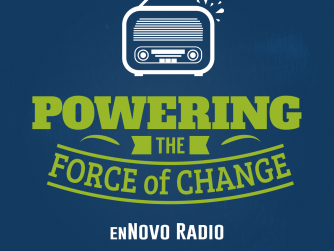
Almost two years ago (more like 18 months), I was having lunch with Dr. John Franke of Biblical Theological Seminary in Hatfield, PA.‚ I posed to him a question concerning a situation I was having in my church.‚ He was kind enough to answer my question with a question, asking me, What are the practical implications of a Trinitarian theology? I had never been asked that question before and had no answers.
Being ashamed that I could not answer the question, I sought the answers.‚ This question is important because we have made functional modalists out of people.‚ In addition, we have abstracted the Trinity.‚ It’s something difficult, therefore it is to be spoken of only in the halls of academia.‚ When is the last time you preached a series on the Trinity?‚ Or even heard one preached?
However, all theology must be practical theology, and the Trinity is no exception.‚ The fusion of thought on this topic and some discussions I was having within my doctoral work led me to form some thoughts not only about the practical implications of the Trinity but its framework for missional theology.
Len Sweet coined the phrase the MRI church in a class discussion and in his book The Perfect Storm. He said that missional churches are an integration of missional, relational, and incarnation aspects, hence the MRI.‚ But I am going to expand Sweet’s idea to a MIROR Church©.‚ Missional Theology needs to be an integration of:
- Missional
- Incarnational
- Relational
- Organic
- Reproductive
In being a MIROR church, we are reflecting who God is in the context of His Trinitarian nature.
Functionally, this is who God is in each of His persons, attitudes and expressions. Though God is one, He is three and each of those three have practical implications for both the church AND for a Christ-follower.‚ It is this practical understanding of the Trinity that I believe gives us the foundation for Missional theology, thought, practice and lifestyle.
Think with me for a moment.‚ God is:
- missional (he sent his son)
- incarnational (he entered into our world in the Garden, in the Old Testament, in the New Testament),
- relational (he established a relationship with himself in the Trinity, with Adam & Eve in the Garden, etc),
- organic (he took many forms in the Old Testament -fire, clouds, visitors, Angel of the Lord, Melchizadek- based on the context where the incarnation took place)
- reproductive (he reproduced himself by making mankind in his own image)
You can work this process through each member of the Trinity.‚ In doing so, and in understanding that we are eikons of God, we come to realize that we too have those natural aspects to our character, function, identity, and spirituality.‚ Yet because we are cracked eikons (a result of sin) we often fail in living these qualities out in the manner God intended.‚ Nonetheless, they are part of us.
The church is also a reflection of God.‚ Thus the church will have an integration of missional, incarnational, relational, organic, and reproductive qualities and aspects.‚ Failure to integrate each of these qualities is a failure to be a missional church, and in my humble estimation, a church in the image of God.
In my next post, I will expound on the Trinity, the concept of missional, and how that is the foundation for the other elements of a MIROR church.







[…] The first post is the one in which he coins his church structural concept, MIROR, which is a spin off of Len Sweet’s MRI construct. MIROR stands for Missional, Incarnational, Relational, Organic and Reproducable. You can read more in his post, The Trinity: Foundations for Missional Theology. […]
[…] The first post is the one in which he coins his church structural concept, MIROR, which is a spin off of Len Sweet’s MRI construct. MIROR stands for Missional, Incarnational, Relational, Organic and Reproducable. You can read more in his post, The Trinity: Foundations for Missional Theology. […]
[…] The Trinity: Foundations for Missional Theology by W. David Phillips (a Pastor, blogger at Missional Glocal Theological, and is doing doctoral work at George Fox Seminary with Len Sweet) […]